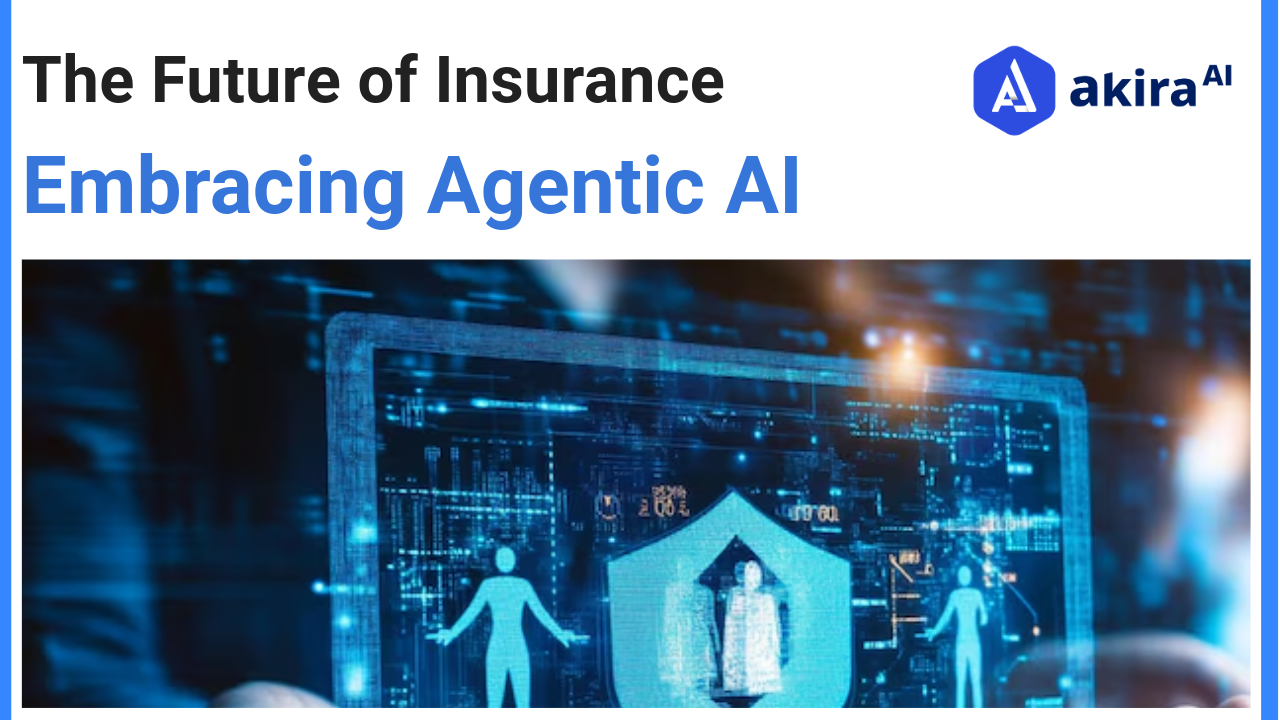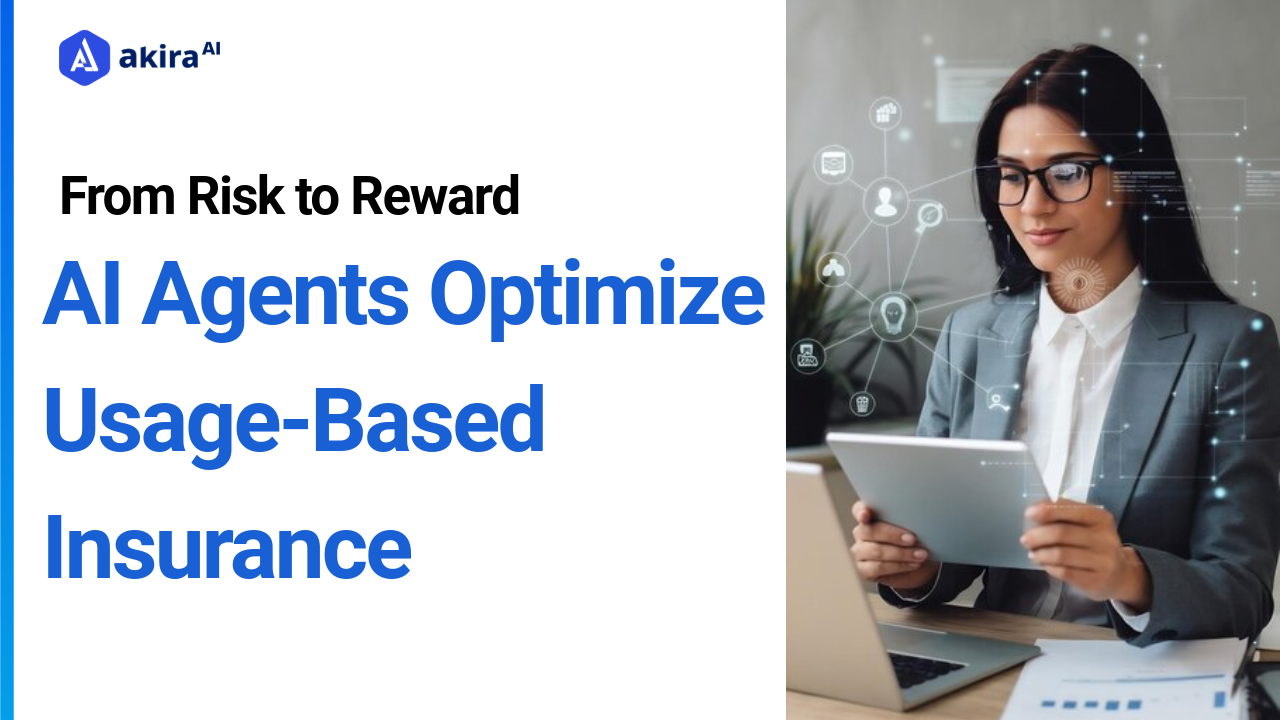Key Insights
-
Agentic AI enhances data analysis, risk assessment, underwriting, and fraud detection, streamlining operations and addressing inefficiencies.
-
AI delivers personalized policies, faster claims processing, proactive services, and 24/7 support, driving satisfaction and loyalty.
-
AI optimizes claims, fraud detection, predictive analytics, and IoT integration, improving accuracy, reducing costs, and fostering innovation.
-
Combining AI with IoT, predictive analytics, and ethical practices will elevate customer engagement, efficiency, and compliance.

Exploring the Benefits of AI Agents for Insurance
Agentic AI offers transformative benefits for the insurance sector by significantly enhancing accuracy, customer satisfaction, cost efficiency, and competitive positioning.
 Fig 1: Benefits of AI Agents for Insurance
Fig 1: Benefits of AI Agents for Insurance
-
Improved Accuracy : This multi-agent system reduces human error in underwriting and claims processing by replacing manual data entry and subjective judgment with precise algorithms and real-time data analysis. This leads to consistent risk assessment, fairer pricing, and more reliable decisions.
-
Enhanced Customer Satisfaction: The system boosts customer satisfaction by accelerating policy issuance and claims handling, minimizing wait times. It personalizes insurance products through customer data analysis and employs predictive analytics for proactive engagement, such as policy renewal reminders and coverage suggestions, enhancing overall experience and loyalty.
-
Cost Savings: AI agents automate routine tasks like data entry and claims processing, lowering operational costs and manual work. They speed up claims handling and enhances fraud detection, preventing losses and reducing investigation expenses.
-
Enhanced Predictive Analytics: Agentic AI will advance predictive analytics by offering more precise forecasts for risk assessment and customer behavior. Through sophisticated machine learning algorithms and extensive datasets, it will enhance insurers' ability to predict claims, identify potential risks, and personalize offerings.
Applications and Use Cases of AI Agents in Insurance
 Fig 2: Use Cases of AI Agents for Insurance
Fig 2: Use Cases of AI Agents for Insurance
1. Customer Sentiment Analysis
These agents evaluate customer sentiment through social media and feedback analysis. This helps companies understand the preferences of their customers better, and better responses lead to better engagement.
2. Automated Claims Processing
Autonomous agents streamline the claims process by automating the tasks of verification of documents, damage assessment, and approval of a claim. It enables direct settlement faster with reduced processing costs, improved customer satisfaction, and better service since claims are resolved much quicker and more accurately.
3. Marketing and Lead Generation
The agents analyze customer data to create personalized marketing campaigns. To know the needs of a particular individual and his preferences, customized insurance products and services can be offered, thus leading to more possible conversions and better retention.
4. Risk Assessment and Credit Scoring
Analyzing the credit scoring of a policyholder against their risk profile through predictive analytics, these agents enable a deeper understanding of the factors involved in risk as well as the creditworthiness of the borrower. This helps them provide competitive and personalized insurance products finally.
5. Fraud Detection and Prevention
Such AI agents use machine algorithms for the observation and detection of fraudulent behavior. Pattern correlation and anomaly will help bring suspicious behavior to the attention of insurers, where it can be detected more effectively to even save money.
6. Loan Underwriting and Mortgage Approval
These agents process large data to assess risk and determine premiums. They incorporate data from social media, telematics, and historical claims to determine a comprehensive risk assessment, which leads to a great degree of precise and fair underwriting decisions and approvals.
7. Customer On-boarding
Such agents simplify onboarding a customer by streamlining identity verification processes, data entry, and compliance checks. This increases the speed, decreases the errors and makes the experience of bringing the new customer on board much smoother.
8. Compliance and Regulatory Reporting
Autonomous agents enhance compliance and regulatory reporting through automated collection of data and efficient report generation. Through predictive analysis, it identifies risks and frauds and keeps track on regulatory changes to keep policies updated.
9. Personalized Customer Experience
By analyzing every customer’s data individually, these agents customize and recommend policies and products as per their needs, improving customer experience in the process.
10. Investment Management
Through data automation, such agents can determine the investment preferences and risks of the customer. It enables them to manage investments and make better decisions.
11. Customer Service
These agents provide 24/7 support to the customers, which allows for personalized responses and quicker response times. This improves customer satisfaction and experience.
12. Cybersecurity and Risk Management
Autonomous agents can assess the risks and prevent fraud by identifying unusual patterns. This enables the company to isolate such incidents and prevent breaches, managing risks effectively.
13. Financial Document Search and Synthesis
Such agents enable efficient document retrieval and through analysis, can identify specific terms in search queries. This semantic understanding of search queries leads to easy cross-document synthesis and quick response times.
14. Regulatory Code Change Consultant
These agents automate the tracking and analysis of regulatory updates, providing timely alerts and impact assessments. They streamline document review by extracting key information and summarizing changes, helping organizations mitigate compliance risks effectively.
15. Debt Collection
The AI agents analyze payment patterns to identify high-risk customers and form communication strategies. They engage customers through personalized messages and reminders, improving collection rates while reducing operational costs.
16. Automation of Back-Office Operations
These agents handle data entry and transaction processing, minimizing manual tasks. This leads to a boost in efficiency, accuracy, and turnaround times while saving costs.
17. Financial Product Innovation and Design
In corporate finance, such agents streamline processes, provide accurate forecasting, and optimize costs. By analyzing historical data and modeling scenarios, they enable more strategic decision-making and better resource management.
18. Treasury Operations
The autonomous agents forecast cash flows and manage liquidity effectively, optimizing treasury functions. Automated risk assessments enable quicker decision-making. This leads to better resource allocation and financial stability.
19. Corporate Governance
AI agents effectively identify governance issues that might constitute specific non-compliance by automating compliance monitoring and risk assessments. Hence, they ascertain transparency and adherence to ever-evolving regulatory standards.
20. Deposits and Withdrawals
Such agents streamline deposits and withdrawals, improving speed and precision. Real-time monitoring minimizes errors and boosts customer trust. Banking has become more efficient for both customers and institutions.
21. Payments and Transactions
These agents analyze data to detect anomalies, which allows them to identify unusual transaction patterns and flag fraudulent payments to prevent further risk.
22. Audit and Internal Controls
By automating data analysis, enabling continuous monitoring, and improving risk assessment, these agents improve audit processes and internal controls. This proactive approach allows organizations to detect irregularities in real time and maintain compliance effectively.
23. Corporate Finance
In corporate finance, these agents streamline processes, provide accurate forecasting, and optimize costs. By analyzing historical data and modeling scenarios, they enable more strategic decision-making and better resource management.
Steps for Insurers to Get Agentic AI-Ready-1.png?width=1600&height=905&name=image%20(14)-1.png)
1. Assess Readiness: Review existing systems and operations to clearly note how AI will add value.
2. Data Strategy: Form a solid data strategy aimed at producing high-quality, integrated datasets for AI analytics.
3.Choose the Right Technology: Pick this system platforms and tools that would help meet business objectives along with fitting them perfectly within existing systems.
4. Build Expertise: Invest in training and development or partner with AI specialists to build internal expertise.
5. Pilot Projects: Identify relevant pilot projects to pilot and hone strategies for implementing AI applications.
6. Continuous Improvement: Update the multi-agent system models and processes based on new data and feedback regularly to ensure continuous improvement.
How Does an Agentic AI Solution Power Akira AI's Capabilities to Empower Insurers?
Akira AI leverages Agentic AI to significantly enhance insurers' capabilities through several key features:
-
Advanced Analytics: It is through this analysis of such huge amounts of data that Akira AI provides deep insights into customer behavior, risk assessment, and market trends, hence allowing insurers to make precise data-driven decisions and refine their strategies effectively.
-
Seamless Integration: The platform integrates with existing systems, ensuring little to no disruption to ongoing operations and letting insurers quickly adopt AI technologies without overhauling their infrastructure.
-
Customization: Akira AI provides customizable solutions designed to the needs of different insurers, ensuring that the AI tools align with their specific business models and regulatory requirements.
-
Security and Compliance: With a focus on data security and regulatory compliance, Akira AI safeguards sensitive information and helps insurers adhere to industry standards, maintaining customer trust and avoiding legal issues.
Future AI Trends in Insurance
-
Integration of Agentic AI and IoT: The fusion of this sytem with IoT would alter data gathering as such. Real-time information from smart devices may be used by AI/ML to customize an insurance product, monitor risk, and even automate claim processing for more responsive solutions.
-
Agentic AI-Driven Chatbots and Virtual Assistants: This multi-agent system will enable chatbots and virtual assistants to give round-the-clock support for all policy inquiries and claims processing with an appropriate and pertinent response given under agentic workflow.
-
Enhanced Fraud Detection: Advanced algorithms of agentic AI will monitor patterns and allow insurers to identify and prevent fraudulent activities. Through learning, there will be the continuous discovery of new tactics to reduce losses and increase security.
-
Evolution of Underwriting and Claims Processing: Agentic workflow will change the face of underwriting and claims processing by automating complex tasks and improving precision. It will streamline these processes, analyze large datasets efficiently, and make swift and accurate decisions.
-
Ethical AI and Data Privacy: This system raises further issues about ethics and data privacy. Its access shall be largely determined by proper use, implementation, increased security measures for customer data, and proper regulations.
-
Enhanced Predictive Analytics: With more precise forecasts for claims and risks, agentic AI will enhance predictive analytics for insurers. Advanced machine learning will improve how matters are priced, underwritten, and even detected with fraud.
Conclusion
As the insurance industry continues to transform with Agentic AI, customer service, solutions, and operational efficiency will significantly improve. This shift will allow companies to respond effectively to ever-evolving consumer demands and build trust and loyalty among policyholders. By incorporating AI agents in insurance, the insurers can stay on top of market trends while getting benefits like tailored personalizations, real-time insights, swift fraud detection, and more.



